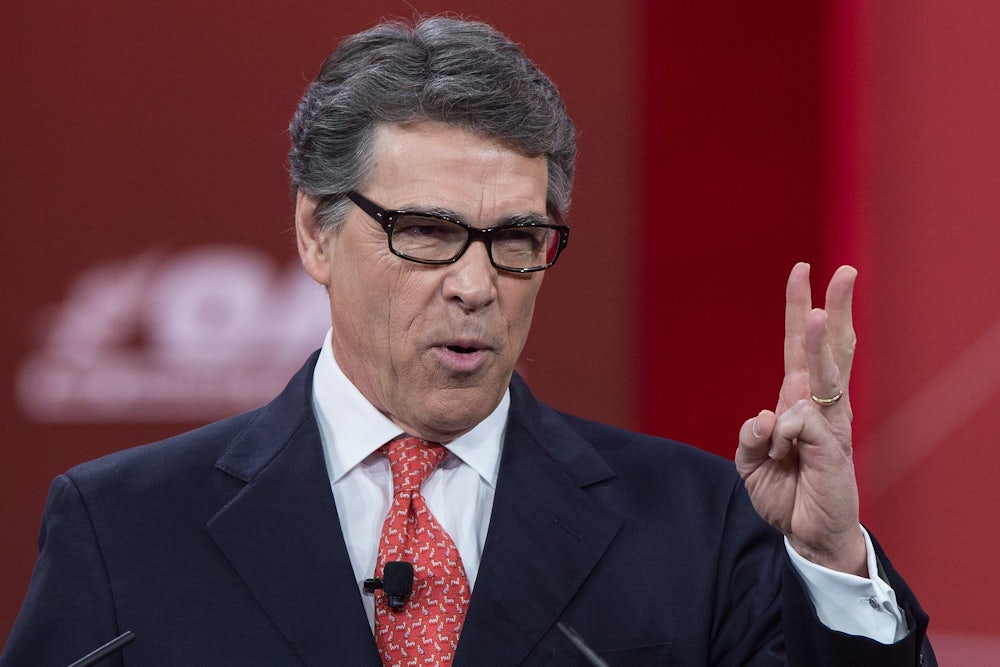A joint Q&A session with the Department of Energy secretary and Interior Secretary Ryan Zinke kicked off day two of the conservative conference, and featured one telling exchange between Perry and the moderator, former Republican Congressman Bob Beauprez. “President Trump, candidate Trump, promised to end the war on coal,” Beauprez said, and turned to Perry. “Tell us what’s changed. Can coal really be competitive with cheap natural gas and relatively affordable oil? I know you haven’t stopped your effort to support research and development of renewables as well.”
Perry chose to focus his response on that last sentence—the effort to support renewables—and said that Trump “truly is an all of the above energy policy:”
Whether it’s the renewables, whether its the innovations we haven’t even seen yet. Clean coal technologies, the carbon capture utilization, sequestration—we’re exporting that around the world. We’re going into India, into China, with technologies where they’re going to use coal. We want them to use American technology that will allow the use of that in the most environmentally friendly way that can occur.
We’re seeing American LNG. We saw a major reduction in the state of Texas in the 2000s in nitrogen oxide, [sulfur dioxide]—the real emissions that affect the environment. We saw a reduction of 20 percent of CO2 in the 12th largest economy in the world by a transition over to natural gas, getting rid of older, inefficient plants, some other changes, and the greatest growth in wind energy in the United States occurred in my home state during that period of time. They produced more wind energy in Texas today than five countries.
That’s the type of energy policy that President Trump wants to see. All of the above, where we’re using our resources, we’re using American innovation, and we’re not just sitting there saying we’re going to regulate our way into Nirvana, because that is a fallacy.
Perry never answered the actual question: Can coal be cost-competitive with natural gas? Is Trump fulfilling his promise? A truthful answer would not be politically expedient. Coal plants continue to retire at a rapid rate, despite Trump’s attempts to revive the industry by repealing environmental regulations. “Troubling economics have proven difficult to overcome, with low wholesale power and natural gas prices being the main contributing factors squeezing margins,” read a February report from consulting firm S&P Global Marketplace Intelligence.
People living in coal communities genuinely believe that the industry is coming back, because people like Trump and Perry say it is. It is not. But what has come “storming back,” according to a Thursday report in The New York Times, is “a new black lung epidemic” in some of those communities.
